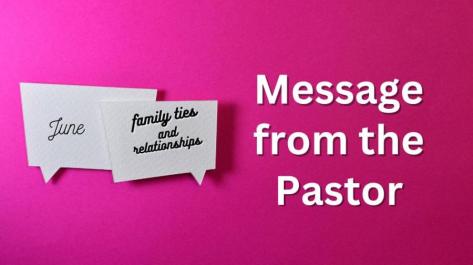Family Ties and Relationships

My mother, brother, and I were looking for something to do on a stupidly hot July afternoon in Fayetteville, NC, outside of Fort Bragg where he was stationed in the early 2000s. We found our way to the county history museum (yup, we were that desperate) which at least offered air conditioning. We perused the history of a place not our own and browsed exhibits about people we had never heard of but which were important locally. We were stopped in our tracks, though, as we came to an exhibit showing newspaper clippings from before the Civil War. Everything you would expect - marriage notices, headlines about political events, local sheriff reports - was there, including a display devoted to ads for enslaved people to be bought and sold, or who had run away.
One of the "runaway" ads was submitted by a man who shared our last name - McIver.
We had known, in the abstract, that there were McIvers somewhere in the family tree who enslaved people on plantations in the south in Georgia and the Carolinas. We are still not sure exactly what branched where (records are murky when you look back far enough, and intermarriage and repeated names confuse who was where at some points), but my father used to tell a story about discovering a McIver on a platoon roster at an army base he was stationed at, and when he went to the mess hall and asked for the person by name, a tall black man stood up. The sins of our kin are real and documented, in paper and ink in Fayetteville, as well as a last name applied to folks who had no other choice.
Our summer worship series is all about family ties and relationships - to those who came before, to those we share life with now, and to those who will inherit whatever legacy we leave. It is an invitation to consider not only the relationships themselves - family can be fraught, funny, fragile, fantastic, frightening, and a thousand other things - but also the stories we share that MAKE us family to each other. As followers of Jesus, we are in Paul's words, "grafted into the tree" of God's family, offering us an even wider set of stories and complexities in Scripture to excavate for grace, meaning, and hope.
In 1850, Isaac McIver (son of a Methodist minister, Rev. Isaac McIver, in Cumberland, England) and his family came to the US, stopping first in Pennsylvania and Illinois before homesteading in Reno County, Kansas, on land that had been taken for the railroad by the US government (in large part by slaughtering the native bison that had served as the mainstay of the indigenous people who had lived there). When Isaac signed up to fight in the Civil War, he signed up on the side of the Union: fighting against the very structures and states that had perpetuated the wealth of their McIver brethren in the south on the backs of
enslaved Africans. Settling on lands taken by force while fighting for freedom for those their kindred exploited: we can bless what they got right without absolving them of what they got wrong.
Like so many stories in Scripture, this ultimately points to the good news that something new is possible with each generation, although none of them would pass any sort of modern moral test: in Genesis, Abraham would discard one son and his son's mother in the desert in favor of another one; Isaac (NOT McIver this time!) would have two sons, one of who was the tricky Jacob, who would go himself into exile after fooling his brother out of his birthright; Jacob would have 12(!) sons, and 11 would sell the 12th into slavery in jealousy of their father's blatant favoritism toward him. Amongst the twelve sons of Jacob, they would at long last be reconciled to each other- mostly - and their descendants would become a family, a tribe, and a people with continuing struggles, sins, and stories. Relationships can heal, stories can change, and God can bring about new ways of
relating to each other - we don't have to repeat the sins of the past, and we can do better, "perfecting in love" our relationships and our behaviors. This is good news.
The good news only makes sense, though, when we tell the whole truth and the whole story. It's all well and good for me to pull out the blue Union uniform of Isaac to show which side of the war OUR family was on (depending on how broadly we decide to define "family"), but the truth of the story is much broader when we telescope out and ask, "How did we end up where we did?" We don't always like the answers to these sorts of questions, but they are healthy to explore and it is humbling to find new truths. We are better, more resilient, and less fragile when we do so.
Where are the gaps in your family stories? What sorts of stories get repeated at family events, and what mysteries are there that never seem to be explained? Are you estranged from your family of origin and do not feel connected to any sorts of ancestors or predecessors? What can you bless, and what deserves examination in the stories you do carry? This is a summer to consider these spaces, and to be thoughtful about what God is calling you to pass on to the next generation - what wounds need healing, what sins need forgiving, what truths need telling.
Let's let these ancient stories from Scripture speak to us - if we listen deeply, we will hear how those who went before us knew God and grace. Things can change, and we can write new ways of doing life together. The Bible tells me so.
Blessings,
Pastor Rachel
